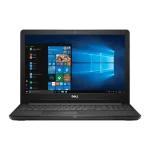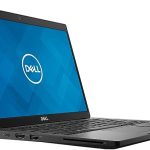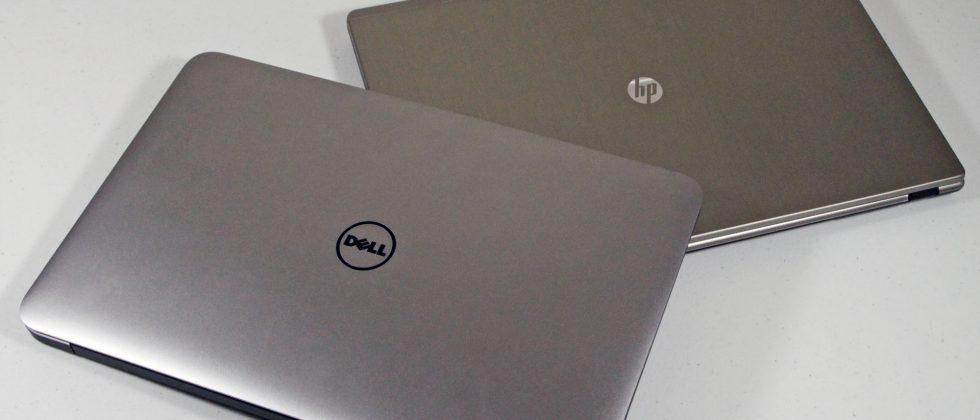Comprehensive Analysis of the Perfect Laptops for Medical Students Looking Ahead to 2025
Section 1: Introduction
There’s no denying that medical school is a strenuous effort and the correct equipment can tremendously aid someone in achieving academic success. For medical students in particular, owning a trusty laptop is perhaps one of the most vital pieces of equipment that they can own. Laptops are required for a variety of purposes, whether it’s note taking, using medical software or studying – a laptop provides a wide range of functionality. By compiling this comprehensive analysis, our goal is to assist medical students in picking out the perfect laptops for their requirements in the year 2025, and to make the selection process easier based on certain parameters such as performance and pricing. Each product is analysed in detail with a focus on real user scenarios, standout features, and honest reviews.
Essentials That Medical Students Seek in a Laptop
1. Portability
From labs and lectures to clinical rotations, medical students are constantly required to perform a variety of tasks. For such students, having a handy, lightweight laptop for seamless usage is important.
User Persona: Emily, a second-year medical student loves her Dell XPS 13 since it is lightweight and extremely portable. She is able to fit the laptop along with her anatomy textbook in a single backpack.
2. Speed And Performance
To ensure that software runs smoothly, a laptop needs to have decent speed and performance. When doing research, it is common to have multiple tabs open; an ideal laptop should be able to handle all of it without any slow down.
Look for: Intel Core i7, Apple M3 chips, or equivalent processors with 16GB RAM or more.
3. Battery Life
If studying for long hours, then the laptop should allow for more than a single charge.
User Persona: Alex, a final-year student, claims that the only time his MacBook Air requires a charge during his hospital shifts is during lunch.
4. Durability
Coffee spills, constant use and travel is all in a day’s use for a medical school laptop.
5.DisplayWatching videos and looking at medical charts requires a high resolution and vertical display.
Ideal: A vertical display of size 13-14 inches and FH4 or FHD resolution is best suitable.
What to keep in mind as must-have requirements for laptops in 2025
Processor: When getting a laptop for medical school aim for a fast CPU. The Intel Core i7/i9 and Apple M3 processors are reliable picks.
RAM: For better multitasking a laptop with a minimum of 16 GB is suitable.
Storage: If the laptop has an SSD of at least 512 GB, it will result in faster booting.
Display: If the laptop screen is bright and colours are rather accurate then that would be perfect. An OLED display or a Retina display works well.
Other Features: As an addition, a touchscreen, 2-in-1 laptop model and an option of a biometric lock will do wonders.
Best Laptops for Medical Students in 2025
1. Apple Macbook Air M3 (2025 model)
Key Features:
A weight of 2.7 lb makes it easy to pick up.
The Apple M3 chip enables the M3 laptop to have a battery life of up to 20 hours.
The use of True tone enables hides for colour inaccuracies.
Exceptional battery life ideal for long study sessions.
Cons:
Does not come with a multitude of ports (requires adapters for external devices).
User Persona:
Sarah who is in her third year studying medicine, uses the MacBook. This helps her consolidate her iPad and other devices together without a fuss.
Price: $1,299 – $1,599
Comparison:
Macbook Air M3 vs Dell XPS 13: The Macbook are the clear winners with their battery capabilities whilst the XPS 13 is able to outperform the Macbook with their display capabilities The Best Laptops for Medical Students in 2025
2. Dell XPS 13 (2025 Model)
Key Features:
Compact size and great display due to InfinityEdge technology being installed
Intel Core i7 processor and 16GB RAM, great for speeding up the laptop.
Differentiating Features:
The company as well as the product, well performed when it came to their marketing strategies and advertisements.
Carbon Fibre – Light yet still durable body.
Modern eye-safe technology to minimise blue light strain.
Pros:
An astounding display ideal for watching anatomy visuals.
The use of Carbon Fibre resulted in durable yet light frames.
Cons:
Average Battery Life of 10-12 hours.
User Persona:
Mike who started his first year has shown enjoyment in using XPS to enable him to see medical diagrams in high quality.
Price: £1,099 – £1,399
Comparison:
XPS 13 vs Lenovo ThinkPad X1 Carbon: XPS 13 stands out being superior in screen quality whereas Lenovo is noted to be integrally stronger.

3. Microsoft Surface Laptop Studio
Key Features:
A convertible chassis and a dynamic hinge which allow better angles when using a touchscreen.
A 14.4 pixel sense which is wide for a traditional laptop but is still portable.
Differentiation features:
Studio Mode allows designer tablet users to switch from writing in a notepad to sketching exceptionally well.
Support for Surface Pen with 4096 pressure points.
Enhanced hinge strength suitable for switching between modes frequently.
Advantages:
Complementary with the Surface Pen for taking notes.
Different modes work great for presentations and studying.
Disadvantages:
An option heavier than the others (3.8 lbs).
User Persona:
Emily loves using the Surface studio mode while annotating her lecture notes.
Price: £1,499 – £1,799.
Comparison:
Surface Studio vs HP Spectre x360: The Surface is more practical but the Spectre has a better experience for a stylus user.
4. Lenovo ThinkPad X1 Carbon Gen 11
Key Features:
Tough military build quality.
Built-in spill-resistant keyboard.
Differentiating Factors:
Has been tested under a range of conditions such as humidity, shock, and temperature: Extreme Conditions.
Best in class ergonomics for keyboards.
Privacy Guard screen for safeguarding against data theft.
Pros:
Excellent experience while typing.
A long durability while using.
Cons:
Does not look as good as the competition.
User Persona:
Sees Adam the final year medical student with butter fingers being a fan of all these.
Price: £1,349 – £1,549.
Comparison:
ThinkPad vs MacBook Air: ThinkPad is the tough one while the MacBook belongs to the excellent integrated Ecosystem.
5. HP Spectre x360 (2025 Edition)
Key Features:
An OLED Touchscreen with a 2 in 1 model.
A privacy screen built-in.
Differentiating Factors:
Sensitive information will be optimal with HP Sure View privacy displays.
Strong yet stylish aluminium casing for better durability.
Good audio with Bang & Olufsen speakers. The Best Laptops for Medical Students in 2025 .
Pros:
Great for drawing and note-related cat works.
Lightweight and stylish.
Cons:
The performance it provides is slightly out of the price range.
User Persona:
Priya writes on the slides using the Spectre during her lectures.
Cost: Between £1,249 and £1,499.
Comparison:
Spectre vs. Surface Studio: On the other hand, the Spectre is slightly more ‘secure’ than the Surface in terms of privacy, while the Surface gives more wiggle-room.
Comparison of Prices
Laptop Model Price Requirements Components
Apple MacBook Air M3 £1,299 – £1,599 Battery, integration
Dell XPS 13 £1,099 – £1,399 Screen resolution

Microsoft Surface Studio £1,499 – £1,799 Usability, note-taking
Lenovo ThinkPad X1 Carbon £1,349 – £1,549 Strength, keyboard
HP Spectre x360 £1,249 – £1,499 Rotating touchscreen, safety aspects
FAQs
Q1: What is the ideal laptop for a medical student in need of taking notes?
A: Thanks to its convertible type and compatibility with the Surface Pen, the Microsoft Surface Laptop Studio is ideal for this situation.
Q2: Are Macs good for medical school?
A: They are if we speak of MacBook Air M3, which has an impressive battery, acceptable performance, and can be used with almost any medical application.
Q3: How much should I budget for a laptop for medical studies?
A: A good cutoff is to factor anywhere between £1,000 to £1,500 for a long-lasting workable laptop.
Disclosure
This article contains affiliate links. If you make a purchase through such links, there is no additional cost incurred by you to us, but we receive a commission. This makes it possible for us to support our growth by producing richer content.
Conclusion
It is essential to carefully consider one’s choice of laptop for medical school. Whether it is one that is lightweight, offering easy portability, or a laptop that is a powerhouse, this list offers the best-suited options according to need. Preferences such as the size of your budget, how much you prefer to spend, and the needs that would arise as a result of the nature of your studies should be contemplated before making any decision.



